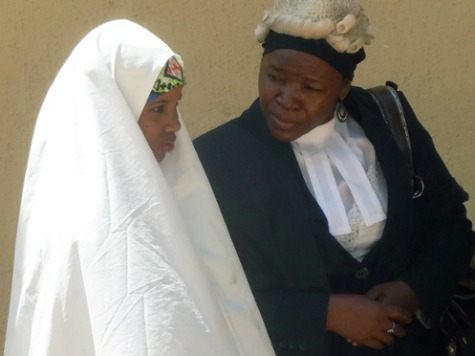A court in the northern Nigerian state of Kano recently dismissed the charges against a 14-year-old girl who killed her 35-year-old husband and three of his friends with rat poison.
Wasila Tasi’u was forced into marriage by her parents. When her attorney, human rights lawyer Aliyu Ibrahim, explained that to the prosecutor, demands for the death penalty were dropped.
Another child bride sentenced to death for killing her husband remains on death row in Nigeria, despite a West African court overruling her sentence, as she is a minor.
However, despite this legal victory, now Ibrahim is concerned that if Tasi’u is sent back to her conservative Islamic parents, they may just simply force her into another arranged marriage. “If we give her back to them, we are destroying what we did,” he said.
Ibrahim is also concerned the community may lash out against Tasi’u. “Four people died. People are angry. They might react,” he also said.
Some conservative Islamic leaders are now demanding that Tasi’u pay about $170,000 in “blood money” for each of the men she killed.
Kano has a majority-Muslim population, and although forced and child marriages are banned by law, they are still frequently practiced. Legally, one can only marry after the age of 18 in Nigeria; however, many families choose to sell off their daughters to older suitors in spite of that law.
According to experts, 17 percent of girls are sold into marriage by the time they are just 15, and 43 percent of all girls are sold before they turn 18.
A number of factors contribute to the prevalence of child brides in Nigeria. For instance, selling a daughter to an older man in the community both eliminates one mouth for the family to feed and brings in a dowry, which can be a serious incentive to sell a daughter in times of severe economic downturn.
Education is another major factor. There are very few schools for girls around the country, and studies have shown that girls who finish secondary education are significantly less likely to be sold off to an older man.
Another element is conservative interpretations of Islam. Many elders in Kano, and other conservative leaders throughout the Islamic world, interpret the Koran to be in favor of child brides. Especially in rural parts of Africa, Islamic cultural norms dictate that a girl be married as soon as she reaches puberty.
The toll of child marriages is incredibly high.
The World Health Organization believes that complications during childbirth are one of the leading causes of death for children aged 15 to 19. Rural Nigerian girls, in particular, are vulnerable to complications, as it goes against custom to have a baby in a hospital.
Children born to adolescent mothers have a high mortality rate, as well, primarily because their immune systems are typically under-developed. This is especially dangerous in rural areas where forced child marriages are most common.

COMMENTS
Please let us know if you're having issues with commenting.